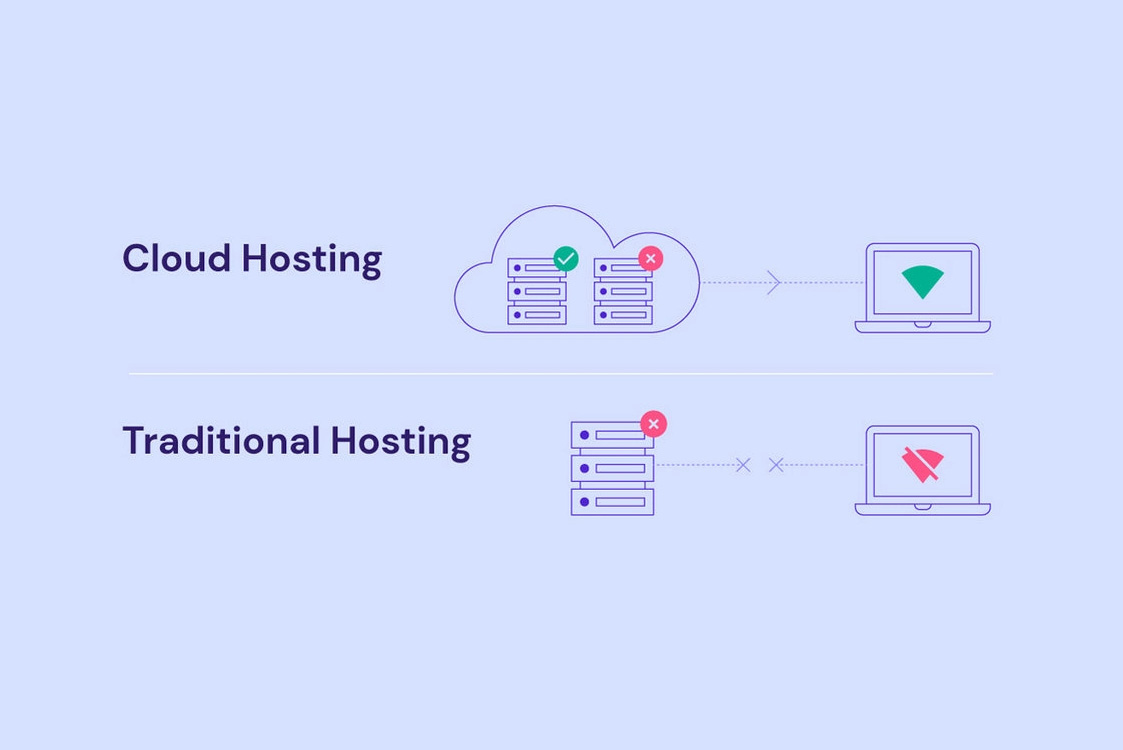Choosing the right hosting for your website
Web hosting plays a pivotal role in the development and management of a website, serving as the foundation for storing and delivering content to users. Various hosting options are available, each offering distinct features and advantages tailored to different needs.

Shared Hosting Servers
Shared hosting is the most basic and budget-friendly form of web hosting, where multiple websites share a single server. This option is well-suited for small websites and personal blogs that do not anticipate high traffic volumes. Popular shared hosting providers include Bluehost, HostGator, and SiteGround. However, with the advent of more cost-effective cloud hosting solutions, we generally do not recommend shared hosting for businesses anymore.
Advantages: Affordable pricing, easy setup, and minimal maintenance.
Disadvantages: Limited resources, reduced security and performance, and restricted control over server settings.

Dedicated Hosting Servers
Dedicated hosting provides an exclusive server for a single website, ensuring optimal performance, security, and control. This premium hosting solution is ideal for enterprises and high-traffic websites requiring maximum stability and customization. Notable dedicated hosting providers include InMotion Hosting, A2 Hosting, and Liquid Web. However, since cloud hosting now delivers comparable benefits with greater flexibility and cost-efficiency, we typically advise against dedicated hosting for companies.
Advantages: Superior performance, enhanced security, and complete server control.
Disadvantages: High costs, technical expertise required for management, and limited scalability.

WordPress Hosting
WordPress hosting is a specialized solution designed exclusively for WordPress-based websites. It offers pre-configured settings, automatic updates, and built-in optimization tools for a seamless experience. This cost-effective hosting option is ideal for those looking for a hassle-free WordPress environment. Prominent WordPress hosting providers include WP Engine and Pressable. However, since cloud hosting offers similar optimizations with greater flexibility and cost advantages, we typically do not recommend WordPress hosting for businesses.
Advantages: Optimized for WordPress, easy setup, and simplified maintenance.
Disadvantages: Limited control over server configurations, restricted customization, and constrained scalability.

Cloud Hosting and Virtual Private Servers (VPS)
VPS hosting strikes a balance between shared and dedicated hosting by partitioning a physical server into multiple virtual servers, each with dedicated resources. It provides enhanced customization, performance, and security compared to shared hosting, yet remains more affordable than dedicated solutions. Cloud hosting operates similarly but leverages a network of interconnected servers to manage website content dynamically. This ensures superior scalability, reliability, and cost-effectiveness, as websites can seamlessly allocate resources based on demand. Leading cloud hosting providers include Microsoft Azure, Amazon Web Services, and Google Cloud. For most websites and platforms, we strongly recommend cloud hosting due to its numerous advantages.
Advantages: Exceptional scalability, reliability, and cost efficiency.
Disadvantages: More complex setup, as well as security and maintenance considerations.
Each web hosting type comes with unique benefits and limitations, making it essential to select a solution that aligns with your specific needs and budget. However, given the affordability, scalability, and superior advantages of cloud hosting, we generally advocate for cloud-based solutions as the optimal choice for modern businesses and platforms.






































